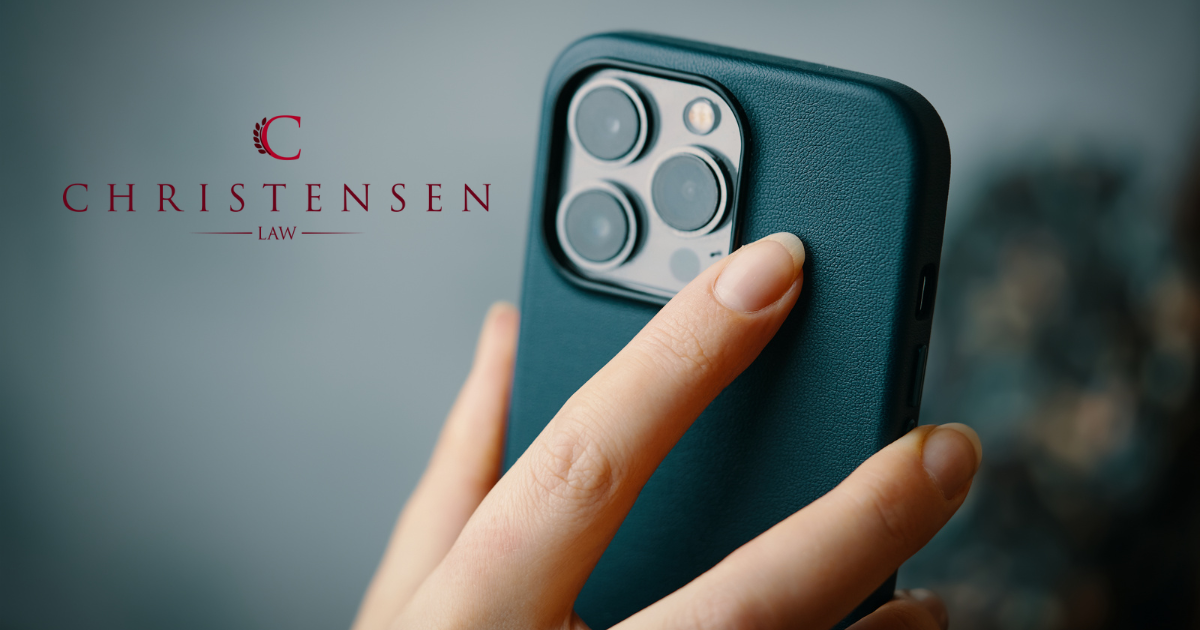As a firm specializing in family law, our practice frequently deals with cases involving children, which can range from divorce and custody disputes to matters involving child support and adoption. These cases cause emotions to run high, and it is not uncommon for our clients to consider using recordings of children as a means of gathering evidence.
Creating a recording has never been easier, most people just simply pull out their phone and take a video or audio recording. But the admissibility of those recordings in court is far from straightforward and can lead to significant legal implications.
Does Utah law allow recordings to be used as evidence in court?
Utah, like many other states, has specific laws and guidelines around the use of recordings of children. Without an understanding of these laws, clients risk inadvertently compromising their case.
Under Utah Rules of Evidence, evidence, which can include recordings, must meet certain requirements to be considered admissible, or accepted in court. Evidence must be relevant and non-prejudicial. Additionally, Utah Code specifies that children are to be safeguarded by protecting their privacy and ensuring the reliability of any recordings.
To further illustrate the significance of this topic, consider the following example from a previous case:
Using Recordings of Children as Evidence Case Study:
In a recent divorce and child custody dispute, a mother recorded her daughter expressing her emotions about visiting her father. The daughter showed that she was visibly upset, crying saying that she did not wish to go see her father. The mother believed that this recording would help her case for primary custody and presented it as evidence in court.
However, rather than helping the mother in her case, the court determined that the recording was prejudicial. It was also stated that the mother had not acted in good faith and the act of recording was not necessary to protect the child’s best interests. Even though recording the conversation was technically legal, it was still denied in court due to concerns that the mother was fostering distrust and parental alienation.
Do we recommend using recordings of children as evidence?
We strongly advise against recording your children without the guidance of legal counsel. If you believe that doing so will strongly help your case, consult an experienced attorney to ensure that it is done lawfully and enhances the likelihood of admissibility. We understand that it may seem like a good strategy, but, more often than not, it can result in a negative impact on the court’s perception of your relationship with your child.
Furthermore, using recordings as evidence can prolong and even intensify the nature of family law proceedings, creating even more conflict and making it harder to reach amicable resolutions. Courts will always try to prioritize the best interests of the child, and evidence of parental coercion or manipulation through recordings may weigh heavily against the party who presented it.
It is essential for parents to approach their legal disputes that involve children with sensitivity and consideration for the long-term implications of their actions. While a desire to secure a favorable outcome is understandable, prioritizing the emotional well-being and stability of the children should always come first.
Consult with a Legal Professional Before Using Recordings of Children:
In conclusion, while the temptation to record children in legal proceedings may be strong, we do not recommend doing so without the guidance of a legal professional. Understanding the legal requirements and potential ramifications is essential for protecting both parental rights and the best interests of the children.
Contact Christensen Law:
Contact Christensen Law today to talk to a member of our team about your case. We will help determine whether it is appropriate to use recordings as evidence.
Set up a consultation today by calling 801.303.5800 or utilize our online contact form located here.


